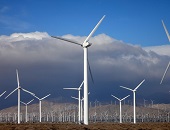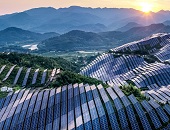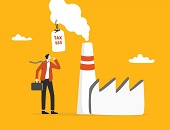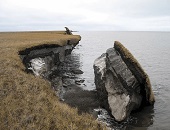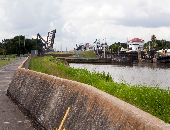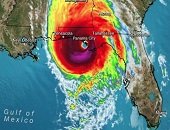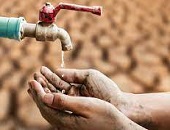Decarb Economics 101
To mitigate the consequences of climate change, the world requires international coordination. In 2015, the Paris Agreement was signed by 195 nations. Its long-term temperature goal is to keep the rise in mean global temperature to well below 2 °C (3.6 °F) above pre-industrial levels, and preferably limit the increase to 1.5 °C (2.7 °F), which would reduce the worst effects of climate change. Many countries are developing policies to get themselves on a path toward achieving the agreed-upon 1.5 °C goal. Although present progress may seem piecemeal, in the words of a Chinese proverb, “A great journey begins with a single step.” The figure below […]
Free the Data
Hurricanes, floods, heat waves, droughts: weather events are increasing in severity as the earth’s atmosphere warms. The consensus is that we need to reduce greenhouse gas (GHG) emissions. Yet recent reports show waning interest in initiatives such as Climate Action 100+. “When performance is measured, performance improves,” according to Pearson’s law, and “when performance is measured and reported back, the rate of improvement accelerates.” Such is the reasoning behind the data repository known as the Net-Zero Data Public Utility (NZDPU). On February 21, 2024, three panelists from NZDPU spoke about the “why” and the “how” of their new organization. The […]
Tax or Cap?
Carbon tax or cap and trade? These are terms bandied about in the political arena as countries decide how to address global warming. “There is a clear consensus among economists,” said Roger Gordon, professor of economics at University of California at San Diego, “that the best way to address global warming is through the global use of a carbon tax on CO2 emissions.” On January 18, 2024, he was speaking at a webinar as part of the biweekly series of talks, titled the Virtual Seminar on Climate Economics, sponsored by the Federal Reserve Bank of San Francisco (FRBSF). “With a carbon tax,” […]
Diversifying Wildfire Risk
Climate change is altering risk profiles the world over. In the US, it has led to an increase in wildfire season length, wildfire frequency, and the size of burned area. When it comes to such disasters, is the economic risk only borne by those in the risky area, or can the economic risk be shared among investors? A recent webinar looked at a longstanding tool for financial adaptation. For nearly a century, mortgages have been used to create mortgage-backed securities (MBSs) in order to share the risk (and thus the return) of financing real estate. “What are the benefits of […]
Resilient earth?
As 2023 draws to a close, we see increasingly severe climate outcomes around the world—from rising emissions to severe weather events, to increased food and water inequality. Three days before the United Nations Climate Change Conference COP 28 began, a multidisciplinary research organization welcomed scientific panellists to a webinar for an audience of hundreds on November 27, 2023, titled “Nurturing a Resilient Earth.” The virtual event, sponsored by CIFAR (Canadian Institute for Advanced Research), convened an interdisciplinary panel of four top researchers. The discussion was moderated by Stephen Toope, President & CEO of CIFAR, and the author most recently of A […]
Flood Economics
When it comes to natural disasters such as flooding, does it make more economic sense to control the flood? Or to sit back, suffer the consequences, and count on insurance? Climate change leads to more frequent and more intense flooding. As these risks intensify, public funds will often be used to protect communities. Recent work done by economists estimates the amount and distribution of benefits from a major form of public flood risk adaptation, flood control levees. A levee is an embankment built to prevent the overflow of a river. The efficiency and equity implications of levees were investigated by […]
World Energy Outlook
On October 24, 2023, the International Energy Agency (IEA) released its annual report, World Energy Outlook (WEO), to an international audience. The agency states that the energy world “remains fragile but has effective ways to improve energy security and tackle emissions.” Agency analysts looked at how close the countries of the world are to meeting the objectives of the Net Zero Emissions by 2050 (NZE) Scenario, which limits global warming to 1.5 °C, a goal signed by many countries and often referred to as the Paris Agreement. [As of March 2021, 194 states and the European Union have signed the […]
The Role of Insurance in Recovery
Climate change is bringing on events, such as hurricanes and wildfires, of greater severity and frequency than ever before. How does insurance help communities rebuild? What economic barriers arise during recovery? Is insurance the best way to provide disaster relief? These are some of the questions tackled by Carolyn Kousky of the Environmental Defense Fund (EDF) in her recent book and research. She is a co-editor of A Blueprint for Coastal Adaptation and author of Understanding Disaster Insurance: New Tools for a More Resilient Future. On October 19, 2023, Carolyn Kousky, Associate VP, Economics and Policy Analysis at EDF, gave a presentation on […]
Managing Water Risk
Flooding, drought, and the polluted quality of water pose a business risk to the agricultural sector, which affects everything from geopolitical risk to inflation. What is the cause of water risk, and how can it be mitigated? On October 3, 2023, Catherine David, Director of Collaboration and Change at Waste and Resources Action Programme (WRAP) and a specialist in water risk, spoke about water management designed for sustainability. The webinar was sponsored by the Global Association of Risk Professionals (GARP) and was moderated by Jo Paisley, President, GARP Risk Institute. “According to the FAO,” David said, “by 2030, global demand for […]
The Greenium
Does the average household want to invest in climate-friendly assets? If so, what proportion of assets are earmarked for green investments? What kinds of assets (equity or fixed income) are preferred? “Green investments are popular, but only about one-third of German households have some kind of green account,” said Monika Piazzesi, Professor of Economics at Stanford University. She was speaking at a webinar titled “Household Climate Finance: Theory and Survey Data on Safe and Risky Green Assets,” held on September 7, 2023, as part of the Virtual Seminar on Climate Economics sponsored by the Federal Reserve Bank of San Francisco (FRBSF). Her […]

